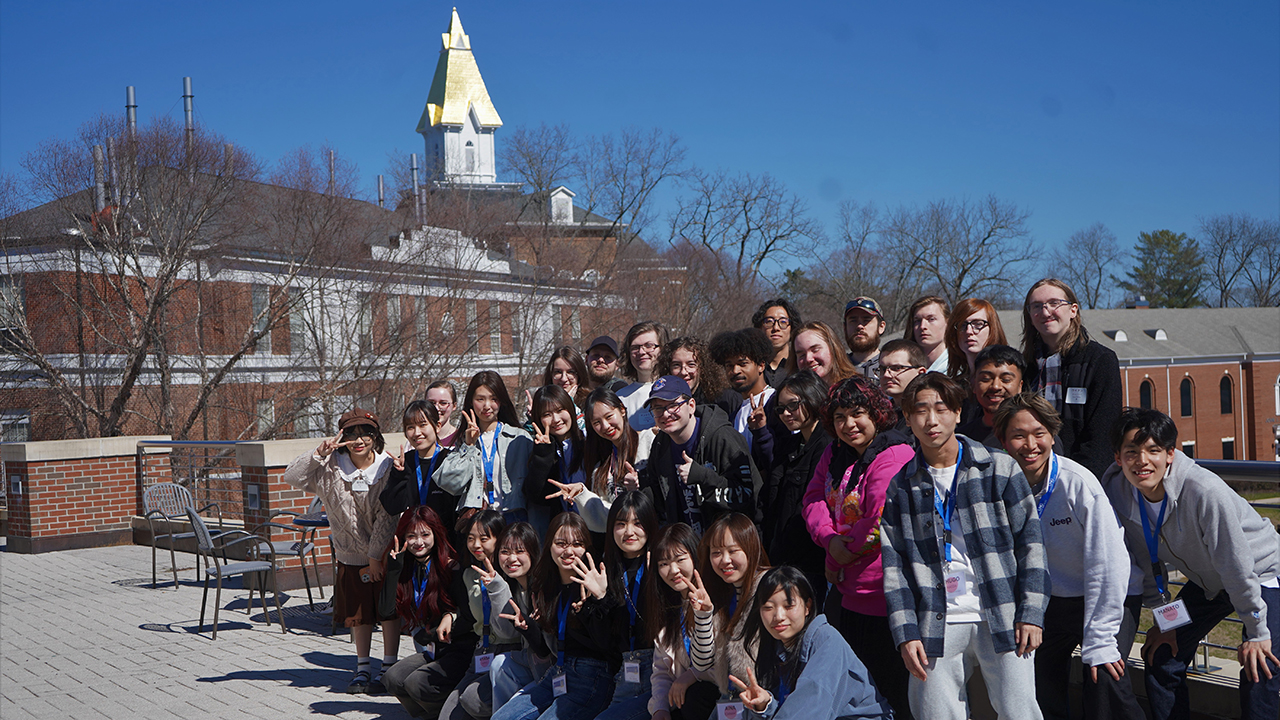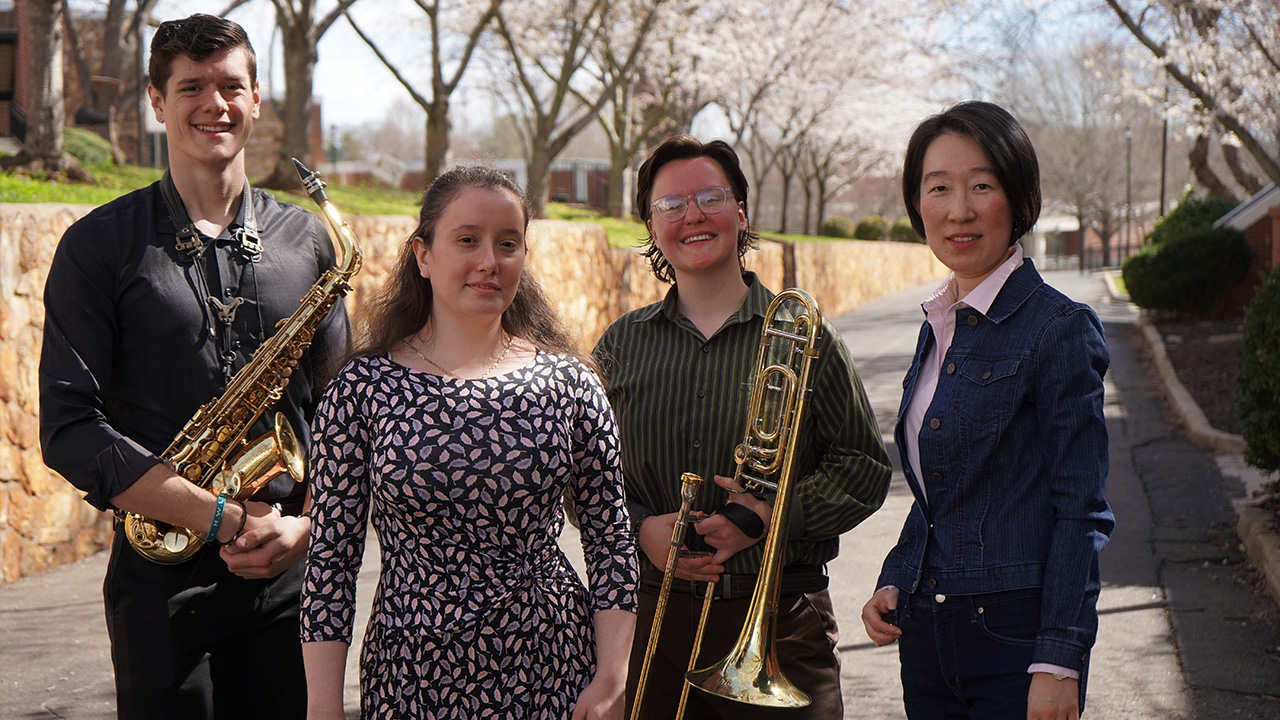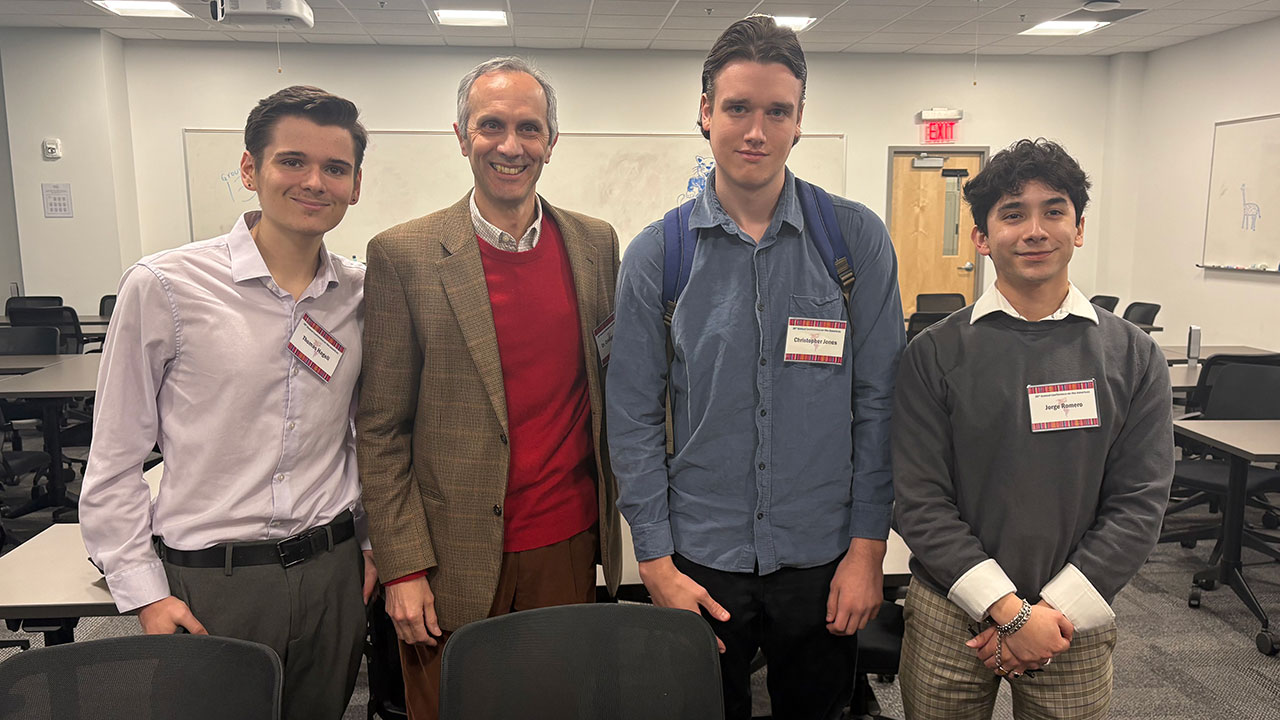Japanese culture comes to UNG

Article By: Staff
Japanese dignitaries visited the University of North Georgia (UNG) Dahlonega Campus on March 8 as part of an ongoing effort to teach students about authentic Japanese society and culture.
This visit was the second trip that the consulate made to UNG. During the first in 2016, Japanese Consul General Shinozuka and Consul Ohyama met with university leaders about possible partnerships as UNG began to expand its Japanese studies program.
"This trip is a result of that initial conversation and the goal now is to promote better understanding of Japanese society and people. We were thrilled to offer our students the opportunity to witness a traditional tea ceremony demonstration as well as hear a public lecture by famed Japanese journalist Yoichi Kato," said Dr. John Wilson, associate vice president of international programs at UNG.
The tea ceremony is a thousand-year-old choreographic ritual of preparing and serving Japanese green tea that symbolizes pouring all of one's attention into the predefined movements, meant to demonstrate grace and good etiquette.
"The event was designed to encourage students to think deeply about Japanese culture and society, and its relationship with the United States," said Dr. Tomoe Nishio, assistant professor in the Department of Modern and Classical Languages at UNG. "The lecture by Kato provided students a chance to reflect on how American politics is understood by Japan as a longtime ally of the United States. Ultimately, the event was aimed at promoting friendly relations between the U.S. and Japan."
Kato is the bureau chief of the American General Bureau of the Asahi Shimbun, one of the major daily newspapers in Japan. He is based in Washington, D.C. Prior to his current assignment, Yoichi was national security correspondent at Asahi's Tokyo head office, and reported extensively on security issues in the Asia-Pacific region. His area of expertise is the national security policy of Japan and its alliance with the United States.
Kato's lecture discussed Japan's view of the impact of the Trump administration on the security environment in the Asia-Pacific region.
In 2016, UNG was awarded a $400,000 grant from the Japan Foundation to introduce a concentration in Japanese studies. The goal of the program is to educate the next generation of civilian and military leaders in the languages, cultures, histories, politics, and the arts of China, Japan and Korea.
The concentration offers students the opportunity to combine a minor in Chinese, Japanese or Korean language with a regional focus developed from coursework in anthropology, culture, digital animation and film, history, international affairs, philosophy, and political science.



